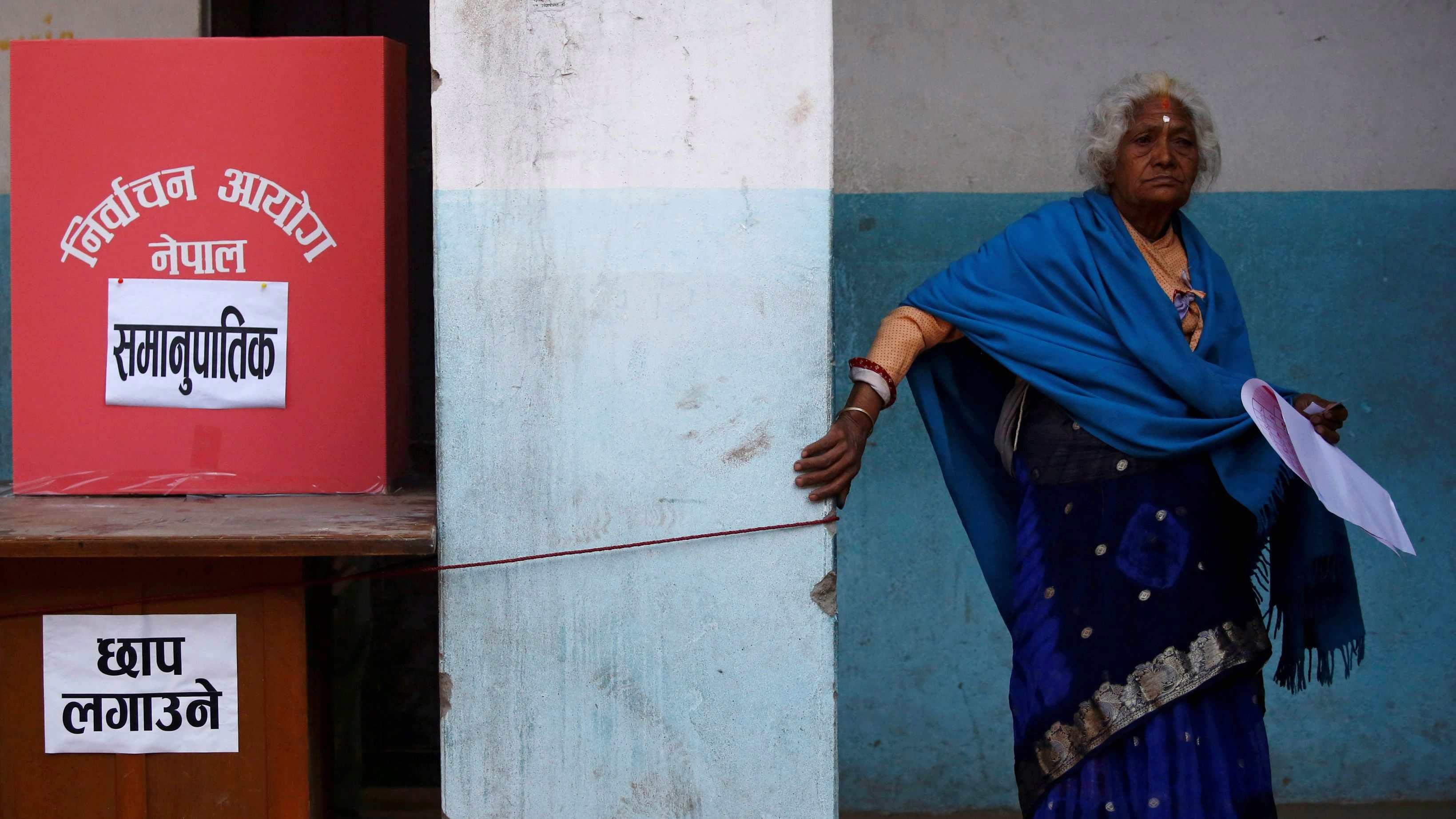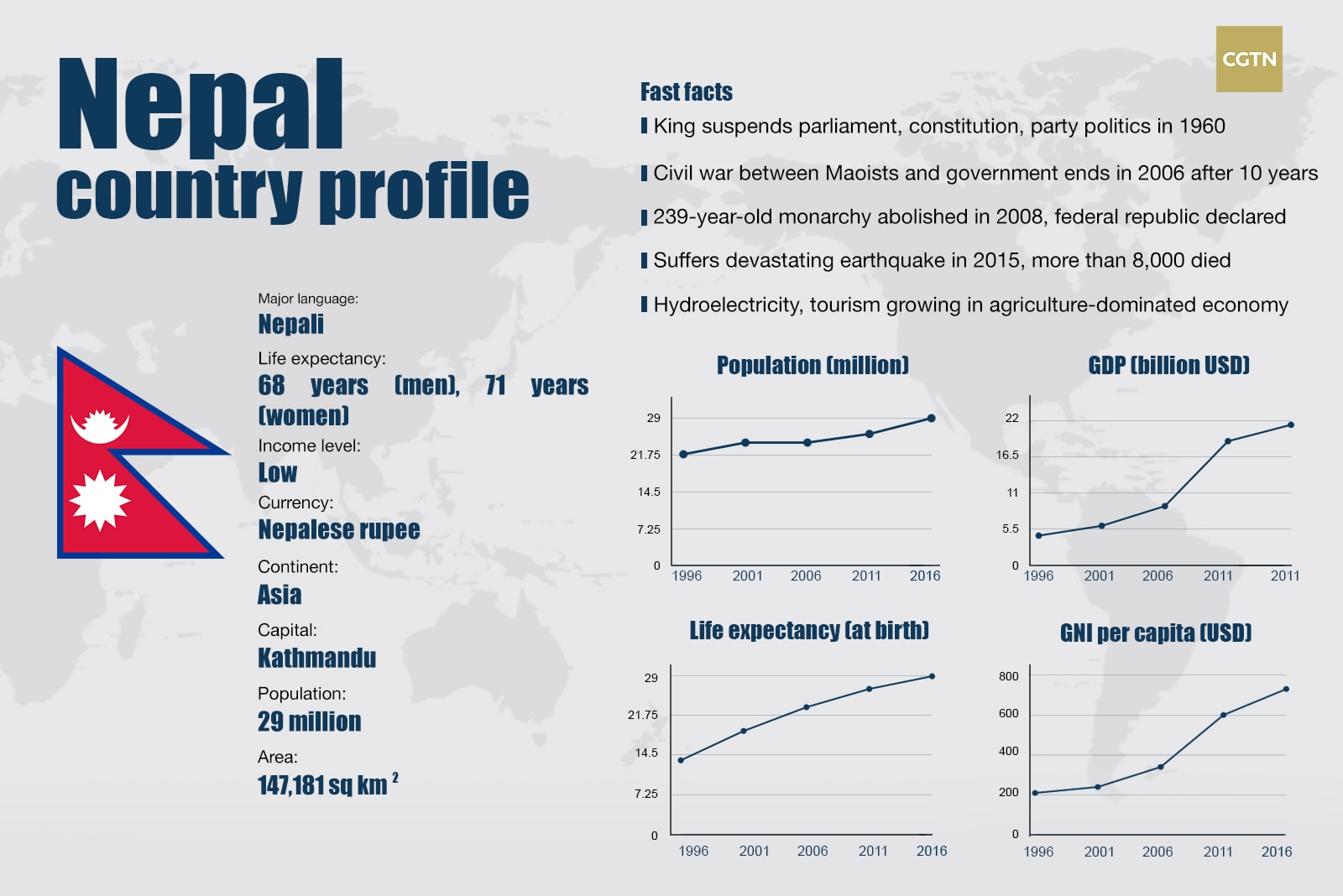
Politics
18:56, 07-Dec-2017
Nepal seeks stability as millions vote in historic elections
CGTN

Millions of Nepalis went to the polls on Thursday in the second phase of regional and national elections that will hopefully bring stability to a country beset by recent political turmoil.
The elections, including the first assembly in the Himalayan nation under a constitution adopted in 2015, are taking place under intense security after sporadic violence over the past week which saw one person killed and dozens wounded.

Path to democracy
Nepal has suffered a tumultuous recent history, from the mass shooting of the royal family in 2001 to a devastating earthquake that killed more than 8,500 people in 2015.
Politically, the country has been extremely unstable since the civil war between Maoist rebels and the government ended in 2006, with the king forced to give up his role. There have been 10 prime ministers over the past 11 years.
Nepal abolished its 239-year-old monarchy in 2008 and attempted to implement a federalist system, but political fighting meant a new constitution did not enter force until 2015.
The new constitution significantly reformed Nepal’s political system, and the current round of elections will see power devolved from Kathmandu to seven provinces.
Who are the candidates?
The national parliamentary elections will be played out between two competing blocs, with 138 seats needed to form a government in the 235-member chamber.
The centrist Nepali Congress party of Prime Minister Sher Bahadur Deuba leads a group that includes former royalists.
The bloc is opposed by a leftist alliance of former Maoists and the moderate Communist Party of Nepal-Unified Marxist-Leninist and Maoist Center.
How do the elections work?
Around 12 million people in the south of Nepal are eligible to vote on Thursday, while residents of the northern, mountainous regions of the Himalayan nation cast their ballots on November 26.
More than 15 million Nepalis are eligible to vote for representatives in seven provinces as well as in the national assembly.
The 275 seats in the national parliament are elected in a mixed system: 165 through first-past-the-post and 110 on a proportional basis in both rounds.
Counting of all the votes is expected to start on Friday and take several days.
Nepal’s economy
Nepal is one of the poorest countries in the world, but its agriculture-dominated economy could be boosted by its potential as an exporter of hydropower.
The country has benefited from substantial Chinese investment, particularly in infrastructure building, and trade between the neighboring nations is growing.
Nepal is also a participant in the Belt and Road Initiative. Officials have identified three potential projects to be implemented, including a cross-border railway project connecting China's bordering town Kerung with Nepal's capital Kathmandu.
3159km

SITEMAP
Copyright © 2018 CGTN. Beijing ICP prepared NO.16065310-3
Copyright © 2018 CGTN. Beijing ICP prepared NO.16065310-3